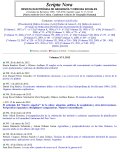Other revolutions, other independences
Keywords:
Independences, revolutions, territories, Latin America, 1960Abstract
During the decades of 1969 and 1979 in Latin America other revolutionary processes – differentiated form those of the mid XIX - were lived that were historiographically read as victorious in some countries, for example Cuba and as defeated in others. Among the latest the guevarista project expressed itself going beyond the borders of states-nation and with a Latin American approach. The support of young people from different political origins/backgrounds to this project happened in a revolutionary context covering uprisings in Europe, Africa and Asia.The revolutions of Latin American resistances during the confrontation of the so called “Cold War”, rebelled against the American imperialism and in each national case with specific processes, as the assumption of military governments. In Argentina, the burocratic authoritarian state of 1966 (O’Donnell 2009), cancelled the democratic political mechanisms with the purpose of re establishing the former social and economic order, modified by the autonomous organization of the working class achieved from 1945. Such state backed its doings in the doctrines of the internal enemy and of the national security to become war machines. (Deleuze y Guatteri 1997).
Through this communication we try to analyze the territorial strategies of the revolutionary groups of the decade of 1960 and the beginning of 1970’s and the territorial answers of the burocratic authoritarian states. We try to reconstruct the practices of the power, through interviewing clue informants, examining sources of official and private files, and the speeches in the national and local press.
Downloads
Issue
Section
Articles
License
Los autores que publican en esta revista están de acuerdo con los siguientes términos:
- Los autores conservan los derechos de autoría y otorgan a la revista el derecho de primera publicación, cin la obra disponible simultáneamente bajo una Licéncia de Atribución Compartir igual de Creative Commons que permite compartir la obra con terceros, siempre que estos reconozcan la autoría y la publicación inicial en esta revista.
- Los autores son libres de realizar acuerdos contractuales adicionales independientes para la distribución no exclusiva de la versió de la obra publicada en la revista (com por ejemplo la publicación en un repositorio institucional o en un libro), siempre que se reconozca la publicación inicial en esta revista.





